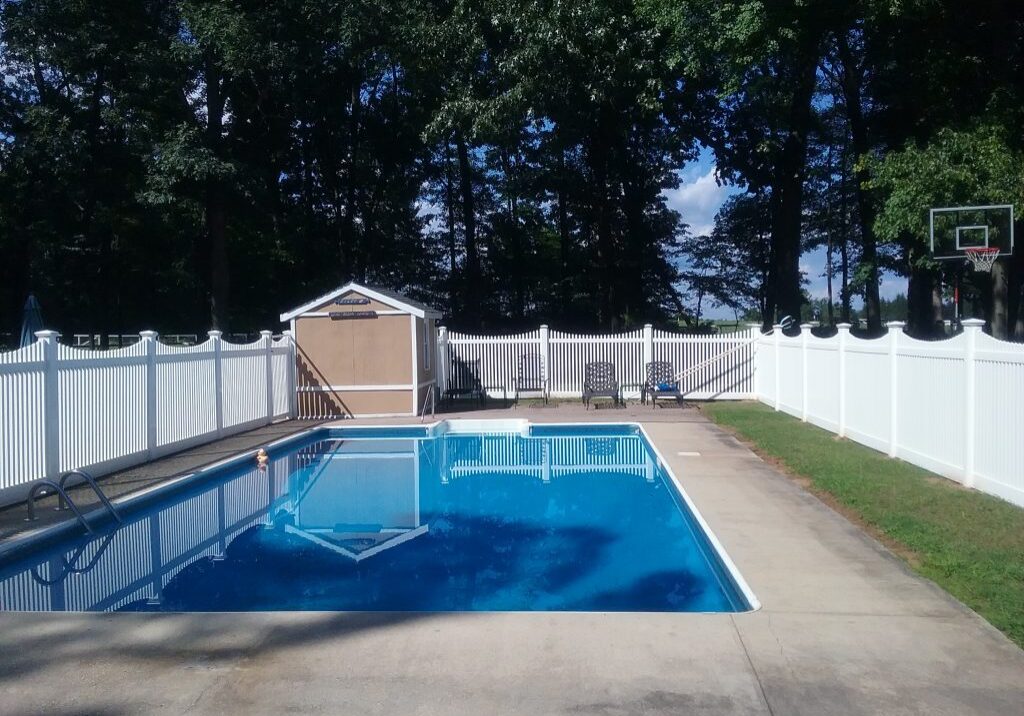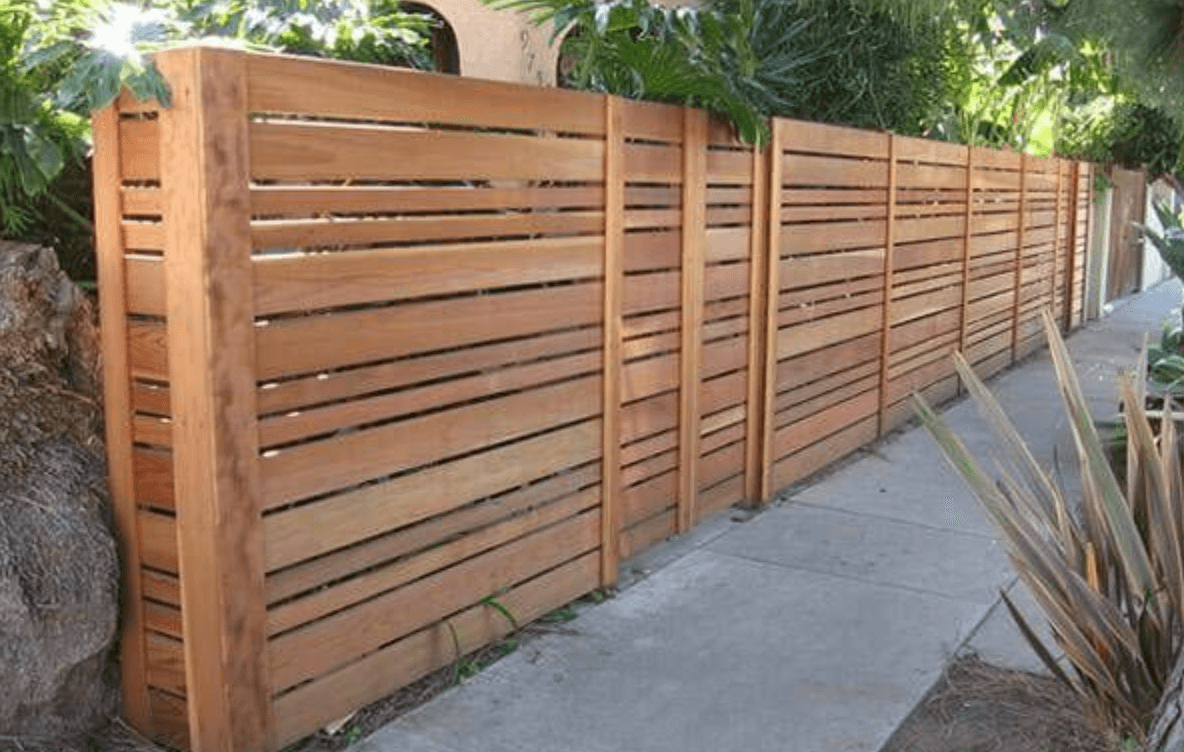Featured
Picking the ideal fence material for your home is not just about looks; it has to do with privacy, durability, and safety and security. Whether you're looking to boost the elegance of your home or company, secure your residential property, or create an exclusive sanctuary, the material you pick will certainly play a substantial duty in attaining your objectives. With many secure fencing options offered, it is necessary to understand the benefits and drawbacks of each prior to making your choice.
Benefits:
All-natural Visual: Timber has a warm, all-natural charm that enhances the look of any kind of home. Adjustable: Timber fences can be repainted, stained, or left untreated to attain different styles. Privacy: A high timber fence can provide a high level of privacy for your home. Negative Aspects:
Maintenance Required: Timber fencings need regular upkeep, including staining and sealing to prevent damages from climate and parasites. At risk to Weather: Timber can warp, rot, or end up being ravaged with termites if not correctly preserved. Shorter Life-span: Contrasted to products like plastic or steel, wood commonly has a much shorter life expectancy. Best For: Property owners seeking a traditional, adjustable, and all-natural look.
![]()
Advantages:
Low Maintenance: Plastic does not call for paint, discoloration, or sealing. It's very easy to tidy with a basic hose pipe down. Sturdy: Immune to rot, termites, and weather condition, vinyl fencings last much longer than timber fencings. Range of Styles: Readily available in several designs, colors, and structures to suit any type of residential or commercial property. Disadvantages:
Greater Preliminary Expense: The upfront expense of plastic secure fencing is generally greater than timber or chain link. Prone to Cracking: In extreme cold or with heavy influence, vinyl fences can damage or crack. Much less Customizable: Unlike timber, vinyl provides less options for paint or staining. Best For: Homeowners or organizations trying to find a low-maintenance, resilient, and resilient secure fencing choice.
Advantages:
Strength and Durability: Steel fencings are strong, resistant to put on, and long-lasting. Reduced Upkeep: As soon as installed, steel fencings call for little maintenance, specifically aluminum, which resists deterioration. High Protection: Steel fencings are tough to climb and offer an effective barrier against trespassers. Disadvantages:
Price: Steel fences, especially wrought iron and steel, can be a lot more pricey than various other alternatives. Rust and Corrosion: Steel fencings, particularly, might rust without proper therapy. Light weight aluminum is corrosion-resistant, but functioned iron calls for normal maintenance. Minimal Personal privacy: Metal fences do not offer much privacy unless they are incorporated with other materials, like wood slats or plastic inserts. Best For: Those that prioritize safety and security and toughness over privacy, or those with a high end property seeking a sophisticated, timeless fence.
Benefits:
Cost-Effective: Chain link is just one of one of the most budget friendly fence alternatives readily available. Reduced Upkeep: As soon as mounted, wire mesh fence require little maintenance beyond occasional cleaning. Resilient: Chain web link is solid and can last for many years if effectively kept. Disadvantages:
![]()
Restricted Aesthetics: Wire mesh fence do not supply the visual appeal of wood or functioned iron, and can look utilitarian. Privacy Concerns: Unless personal privacy slats or plastic finishes are added, chain link fencings do not offer much personal privacy. Less Protected in Some Locations: While chain web link provides safety and security, it can be easily scaled or cut otherwise installed with extra protection attributes. Best For: Commercial residential or commercial properties, big houses, or areas where safety is more vital than aesthetic appeals.
Advantages:
Low Maintenance: Compound fencings need no staining, securing, or paint. Toughness: Resistant to insects, rot, and climate damages, composite fencings last longer than timber. Eco-Friendly: Lots of composite fencings are made from recycled materials, making them a lasting choice. Downsides:
Greater Cost: Compound fences can be extra costly than conventional timber or plastic alternatives. Minimal Customization: While available in different colors and styles, composite fences do not offer the very same modification options as timber fences. Heavy: Composite secure fencing materials can be heavier than other choices, making installment extra labor-intensive. Best For: Eco-conscious home owners or services searching for a low-maintenance, long-lasting, and lasting fencing material.
Verdict. Choosing the ideal fencing product for your residential or commercial property ultimately depends on your priorities-- whether it's protection, privacy, aesthetics, or reduced maintenance. From timeless timber and inexpensive chain web link to durable plastic and strong steel, each material provides unique advantages matched to various needs. By taking into consideration factors like spending plan, setup time, upkeep needs, and long-term resilience, you can pick the excellent fencing that fulfills your residential or commercial property's specific requirements.
- Timber Fence. Wood is among the most preferred secure fencing products as a result of its convenience, timeless appeal, and all-natural look. It's excellent for houses and can be used in a range of styles, including privacy fencings, picket fences, and post-and-rail fencings.
Benefits:
All-natural Visual: Timber has a warm, all-natural charm that enhances the look of any kind of home. Adjustable: Timber fences can be repainted, stained, or left untreated to attain different styles. Privacy: A high timber fence can provide a high level of privacy for your home. Negative Aspects:
Maintenance Required: Timber fencings need regular upkeep, including staining and sealing to prevent damages from climate and parasites. At risk to Weather: Timber can warp, rot, or end up being ravaged with termites if not correctly preserved. Shorter Life-span: Contrasted to products like plastic or steel, wood commonly has a much shorter life expectancy. Best For: Property owners seeking a traditional, adjustable, and all-natural look.
- Plastic (PVC) Fencing. Plastic fencings are an increasingly prominent choice as a result of their low maintenance and resilience. Made from artificial products, vinyl fences are immune to rot, degeneration, and pests. Offered in a range of colors and designs, vinyl secure fencing can be created to simulate the look of timber without the connected upkeep.

Advantages:
Low Maintenance: Plastic does not call for paint, discoloration, or sealing. It's very easy to tidy with a basic hose pipe down. Sturdy: Immune to rot, termites, and weather condition, vinyl fencings last much longer than timber fencings. Range of Styles: Readily available in several designs, colors, and structures to suit any type of residential or commercial property. Disadvantages:
Greater Preliminary Expense: The upfront expense of plastic secure fencing is generally greater than timber or chain link. Prone to Cracking: In extreme cold or with heavy influence, vinyl fences can damage or crack. Much less Customizable: Unlike timber, vinyl provides less options for paint or staining. Best For: Homeowners or organizations trying to find a low-maintenance, resilient, and resilient secure fencing choice.
- Steel Fencing (Light Weight Aluminum, Steel, and Wrought Iron) Steel fences are recognized for their toughness, security, and visual worth. Light weight aluminum, steel, and wrought iron fencings are frequently used in domestic, industrial, and commercial settings, providing high degrees of protection and an advanced look.
Advantages:
Strength and Durability: Steel fencings are strong, resistant to put on, and long-lasting. Reduced Upkeep: As soon as installed, steel fencings call for little maintenance, specifically aluminum, which resists deterioration. High Protection: Steel fencings are tough to climb and offer an effective barrier against trespassers. Disadvantages:
Price: Steel fences, especially wrought iron and steel, can be a lot more pricey than various other alternatives. Rust and Corrosion: Steel fencings, particularly, might rust without proper therapy. Light weight aluminum is corrosion-resistant, but functioned iron calls for normal maintenance. Minimal Personal privacy: Metal fences do not offer much privacy unless they are incorporated with other materials, like wood slats or plastic inserts. Best For: Those that prioritize safety and security and toughness over privacy, or those with a high end property seeking a sophisticated, timeless fence.
- Chain Link Fence. Wire mesh fence are one of the most affordable and functional options offered. Commonly utilized in industrial settings, they can additionally be a great selection for houses, particularly if security is a leading concern. Chain web link fences are readily available in numerous heights and can be customized with privacy slats for added safety and security.
Benefits:
Cost-Effective: Chain link is just one of one of the most budget friendly fence alternatives readily available. Reduced Upkeep: As soon as mounted, wire mesh fence require little maintenance beyond occasional cleaning. Resilient: Chain web link is solid and can last for many years if effectively kept. Disadvantages:

Restricted Aesthetics: Wire mesh fence do not supply the visual appeal of wood or functioned iron, and can look utilitarian. Privacy Concerns: Unless personal privacy slats or plastic finishes are added, chain link fencings do not offer much personal privacy. Less Protected in Some Locations: While chain web link provides safety and security, it can be easily scaled or cut otherwise installed with extra protection attributes. Best For: Commercial residential or commercial properties, big houses, or areas where safety is more vital than aesthetic appeals.
- Composite Fencing. Compound fencings combine wood fibers and plastic to create a resilient, green option to traditional wood fencing. These fences have the appearance of wood but require a lot less upkeep and are resistant to rot, parasites, and fading.
Advantages:
Low Maintenance: Compound fencings need no staining, securing, or paint. Toughness: Resistant to insects, rot, and climate damages, composite fencings last longer than timber. Eco-Friendly: Lots of composite fencings are made from recycled materials, making them a lasting choice. Downsides:
Greater Cost: Compound fences can be extra costly than conventional timber or plastic alternatives. Minimal Customization: While available in different colors and styles, composite fences do not offer the very same modification options as timber fences. Heavy: Composite secure fencing materials can be heavier than other choices, making installment extra labor-intensive. Best For: Eco-conscious home owners or services searching for a low-maintenance, long-lasting, and lasting fencing material.
Verdict. Choosing the ideal fencing product for your residential or commercial property ultimately depends on your priorities-- whether it's protection, privacy, aesthetics, or reduced maintenance. From timeless timber and inexpensive chain web link to durable plastic and strong steel, each material provides unique advantages matched to various needs. By taking into consideration factors like spending plan, setup time, upkeep needs, and long-term resilience, you can pick the excellent fencing that fulfills your residential or commercial property's specific requirements.
Latest Posts
Unlock WyHy FCU – Top Benefits for Your Money Goals
Published May 27, 25
1 min read
Don’t Miss Limited-Time Auto Repair Offers in Chicago at Montclare Auto Repair
Published May 25, 25
1 min read
Find Out Cut Costs on Car Maintenance with Montclare Auto Repair’s Special Deals
Published May 24, 25
1 min read
More
Latest Posts
Unlock WyHy FCU – Top Benefits for Your Money Goals
Published May 27, 25
1 min read
Don’t Miss Limited-Time Auto Repair Offers in Chicago at Montclare Auto Repair
Published May 25, 25
1 min read
Find Out Cut Costs on Car Maintenance with Montclare Auto Repair’s Special Deals
Published May 24, 25
1 min read